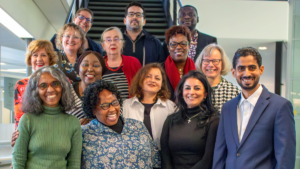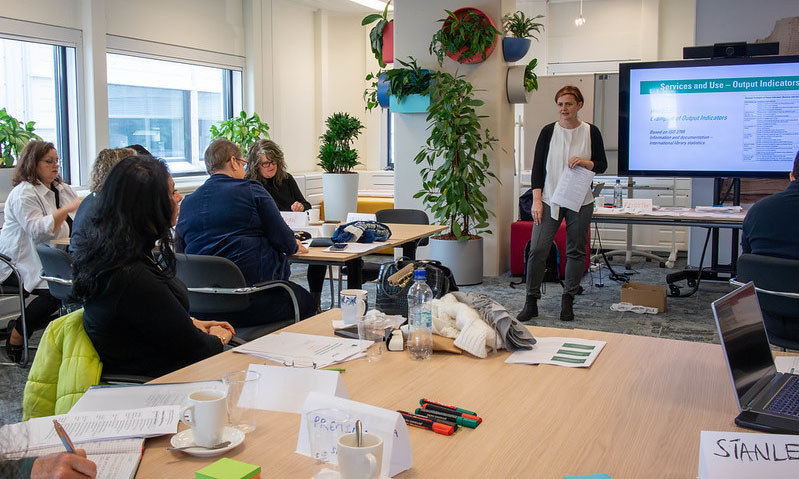Meet the trainers – Measurement, evaluation and demonstrating impact of library services
14 November 2023
Last week, IFLA Headquarters held a Train-the-Trainers Workshop on measurement, evaluation, and demonstrating impact of library services. IFLA’s Member Engagement Officer Kristine Paberza-Ramiresa facilitated the workshop.
Twelve trainers, two per IFLA region, were equipped with knowledge and skills to train other librarians and library advocates. We are glad to share their names and look forward to working together.
| Arlene Alleyne-Regis | Trinidad and Tobago |
| Barbara Schleihagen | Germany |
| Dina Youssef | Egypt |
| Fernando Bravo Arenas | Chile |
| Jan Richards | Australia |
| Jennifer Peters | United States of America |
| Kimberly Silk | Canada |
| Mary W. Kinyanjui | Kenya |
| Olga Kronberga | Latvia |
| Premila Gamage | Sri Lanka |
| Stanley Boakye-Achampong | Ghana |
| Waleed Al Badi | Oman |
IFLA’s vision of a strong, united and sustainable library field originates in the Global Vision discussion, outlined in ten pairs of Global Vision highlights and opportunities. Two of the ten opportunities explicitly involve measurement and evaluation and our capacity to carry it out will make a difference to our ability of demonstrating the value and impact of libraries. They are Opportunity 3: “we need to need to understand community needs better and design services for impact” and Opportunity 6: “we need to ensure stakeholders understand our value and impact”.
The training programme that has now been passed to twelve trainers in all IFLA’s regions provides a framework and tools to strengthen the capacity of the library field when it comes to planning for impact through community engagement and demonstrating impact of libraries on people’s lives and communities. The training aims to help public libraries better understand their changing communities through community assessment and needs identification, to plan activities that meet those needs and can make a difference, measure performance, and evaluate outcomes and impact – benefits for people and changes in communities. Last but not least, the training has a component of evidence-based storytelling, providing a framework for telling compelling stories to demonstrate the contribution of libraries to sustainable development and beyond, and helping to ensure all stakeholders truly understand our value and impact.

The programme will be continued in 2024. We will be working with the trainers to carry out training needs analysis within regions in order to ensure that we deliver the training further where needed thus filling the knowledge and skills gaps and expanding our capacity as the library field to plan for, measure and demonstrate impact.
This event was made possible thanks to a grant from Stichting IFLA Global Libraries.
